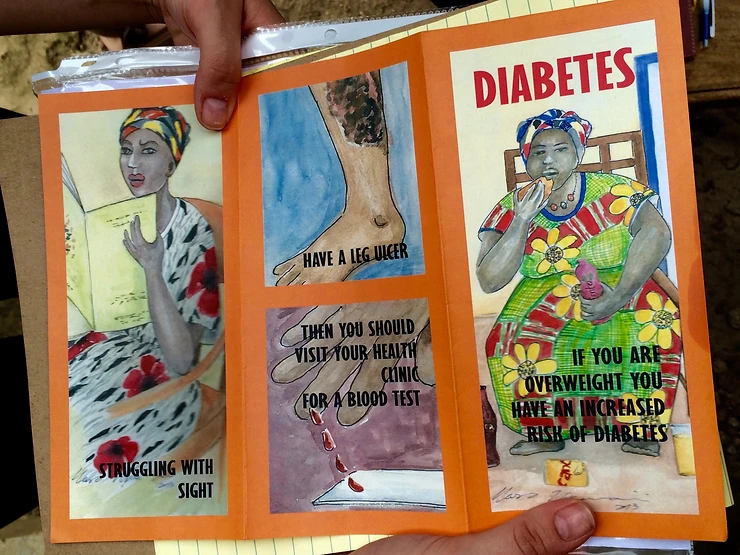May 15, 2016 | Summer 2016
Today, the team was able to meet with a diabetic patient thanks to the help of Hassan, a local translator who became particularly interested in the Ukweli team project. Hassan introduced us to his friend who was diagnosed a month ago with type 2 diabetes. The man explained that he experienced diabetes symptoms for a long time but he never attributed them to the disease (before his diagnosis) and preferred to avoid hospital visits. Only when he decided to visit the local hospital due to a swollen foot, he discovered he had diabetes. Based on the testimony of various doctors that we interviewed in the previous days, this is a repeating trend in Makeni which makes the disease very dangerous and potentially lethal for local individuals.
The man continued the interview describing his visits to the Wednesday clinic at the Holy Spirit Hospital, his treatment, and his struggle with being able to only eat low-sugar or sugar-free foods. In order to give additional help to diabetes patients, a Diabetes Group was formed which meets the final Sunday of each month, sharing stories and advice about diabetes medications and diet. Thanks to this visit, the team was able to further understand the obstacles that prevent individuals from getting diagnosed and treated, which include the far distance from hospitals, the lack of money to purchase prescriptions and care, and the lack of awareness of the population about diseases such as diabetes.
During our meeting with Hassan’s friend, we took the opportunity to get some more insight on the posters we will be using in the hospitals and clinics to advertise our second study. When we asked about our current text-based poster, he told us that pictures are preferred as illiteracy rates are high. We are working with a Graphic Design Assistance Professor from Penn State, Peter, who is developing images, similar to those on posters found around Sierra Leone for our test strip advertisement. Hassan’s friend also had a pamphlet from the hospital on Diabetes, which proved to be helpful in our image development. In addition, he provided helpful clarifications on the rough draft pictures, such as using a big glass of water to represent excessive thirst.
The team worked at World Hope International office to digitalize the notes from filed work, to complete progress on GHTC papers, and further develop our posters.


Professor Peter showing the idea and design of our future poster about diabetes symptoms to the patient and asking for advice. The man also pointed out the ulcer on his foot as he saw the drawing.

The man showing our team the diabetes symptoms flyer provided from the hospital.

A closer look of the patient’s diabetes symptoms flyer from the hospital.
